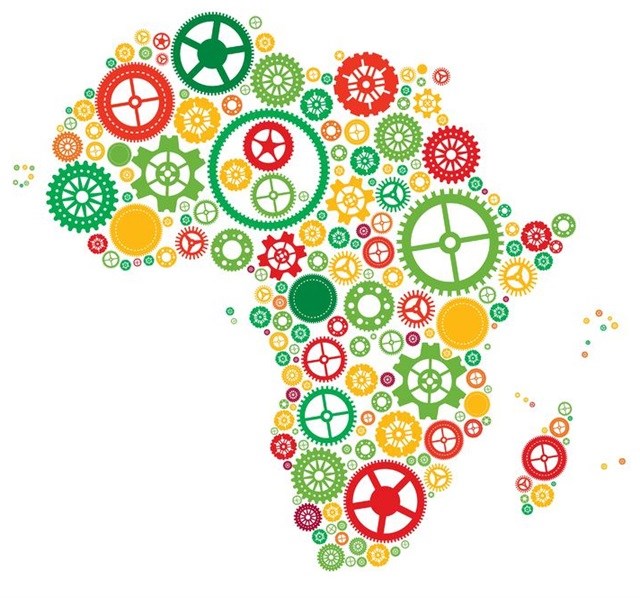
Top stories


HealthcareZimbabwe leads charge against HIV in Africa with lenacapavir rollout
Chris Takudzwa Muronzi 1 day




More news



In particular, governments which have failed to institute political reforms and open up their economies to diversified investment have suffered considerably from the downturn. Conversely, the growth and opportunity story still rings true in a number of African states which present diversified economies and relatively steady political systems. These dynamics are leading to a growing divergence in economic prospects across the continent, requiring a nuanced and well-informed approach by investors.
In 2017, we will see African governments under enormous pressure to deliver results with potentially more scant resources. They will turn to two outlets to achieve this end.
Firstly, businesses can anticipate a continued trend of fiscal reform and more aggressive fiscal and regulatory enforcement to drive revenue collection. This raises the risk of arbitrary or overzealous treatment in some countries where institutional oversight or legal frameworks are weak. In instances where fiscal pressures fundamentally undermine commercial prospects, it will be vital that businesses can develop constructive engagement strategies premised on shared advantage to ensure government can achieve its goals of driving revenue-raising without potentially compromising future investment and growth.
It will be critical that governments ensure efficient and impactful spending to support sustainable growth
With these two revenue streams in mind, it will be critical that governments ensure efficient and impactful spending to support sustainable growth. Those governments that are willing and able to reform public institutions, free-up cash for capital expenditure and create a business environment that is conducive to investment will make promising headway in 2017.
This will create enormous opportunities for business – from plugging the estimated $90bn a year infrastructure gap, to playing a part in the growing number of tech innovations and investments, most notably in South Africa, Kenya and Nigeria. Meanwhile, governments that see revenue-raising as a means to buy short-term political solutions and stave off rising popular or political dissent will see more sluggish progress, underpinned by prominent structural risks.
Signs of this divergence are already evident across Africa’s political-economies. Markets like Rwanda, Ethiopia and Côte d’Ivoire all face structural risks in their political systems. But their clearly articulated vision for development and energised efforts to create a conducive framework for this are reflected in levels of investment and growth. Meanwhile, other markets like Kenya and Tanzania have also placed a strong emphasis on industrialisation and diversification to support higher investment, employment and growth, with some success.
The laggards are by and large the economies which have rested on the laurels of their resource wealth and failed to commit more than rhetorically to diversification and reform. Equatorial Guinea is suffering negative growth while other oil-dependent markets like Gabon, Republic of Congo, Angola and Chad are also struggling to acclimatise to a new oil price environment. The fact that these countries’ political systems are buttressed by patronage and a desire to preserve entrenched vested interests exacerbates this situation, limiting the space for reform and efficient capital expenditure.
Mozambique meanwhile is suffering the consequences of its government’s actions in raising unsustainable debt to fund narrow self-serving interests. This has created a debt crisis that will take years to untangle. Having agreed to an international audit, a number of prominent figures within the ruling administration – leading right up to the President’s office – will come under scrutiny for their role in facilitating or concealing the debt mismanagement.
Meanwhile, the process of disentangling and stabilising the country’s public finances will require substantial support from the bruised IMF and a host of other wary lenders. The promise of major investments in the extractives industry with advancements on some of the final investment decisions on the offshore Rovuma natural gas assets will not be enough to plug the gaping short-term gap in public finances. As such, a mediated resolution with the IMF and other donors will be essential, likely extending well into 2017 and beyond.
Finally, Nigeria presents an interesting example of an economy that is battling between a desire to reform and a resistance to change, particularly from vested interests within the ruling system. As the country pursues its most ambitious debt-raising initiative in history, it stands at a critical crossroads. Following the oil price slide and a raft of production shut-ins linked to insecurity in the Niger delta, Nigeria is sorely in need of a financial injection to facilitate capital expenditure. Moreover, its market fundamentals justify this approach. But debt-raising without reform or adequate governance oversight risks creating a further debt crisis cycle.
In this respect, 2017 offers a unique opportunity for Nigeria to address some of the losses and leakages in its system, and drive a more efficient and performing state. However, President Muhammadu Buhari will need to show a more flexible approach, overcome rumbling divisions within his ruling party, and also tackle some of the current disconnect between his office and other organs of the state – notably the legislature and parts of his cabinet – to deliver on expectations.
A failure to liberalise the foreign exchange system or to secure a lasting peace agreement with Niger delta militant groups in the first six months of the year could prove particularly damaging, further compromising economic fundamentals and turning a rising tide of popular frustrations against the government. These conditions are unlikely to fuel major unrest or instability in the short term, but growing cracks in the ruling party could form the foundations for fragmentation in the lead-up to the 2019 elections.
Source: This article is an excerpt from africapractice’s The African Year in 2017 publication.

How we made it in Africa, established in April 2010, is an award-winning online business publication aimed at African business people as well as foreign investors with an interest in the continent.
Go to: http://www.howwemadeitinafrica.com